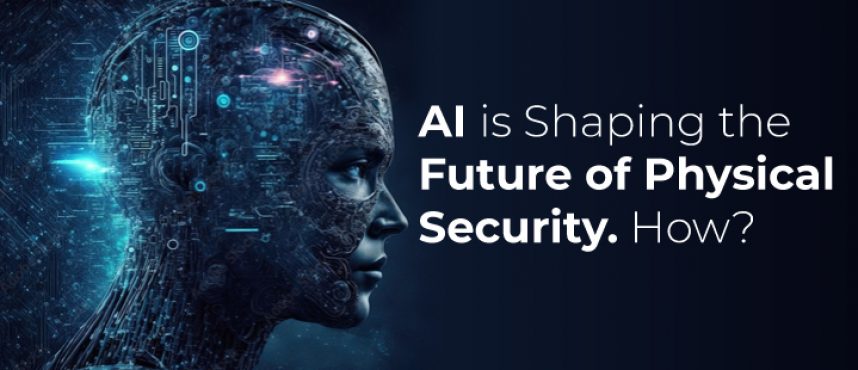AI is Shaping the Future of Physical Security.
Artificial Intelligence (AI) is revolutionizing industries globally, and physical security is no exception. Traditionally, the security industry relied heavily on manual monitoring and reactive measures.
However, AI is transforming this space by making security systems more intelligent, efficient, and proactive. Here’s how AI is strengthening physical security:
- AI-Powered Surveillance
AI-driven surveillance systems can do far more than simply recording footage. It can analyze video feeds in real time, identifying potential threats or suspicious activities without human oversight. Through facial recognition and behavioral analysis, AI can identify unauthorized individuals or abnormal behavior, alerting security teams immediately. This not only improves response times but also reduces human error, providing more accurate monitoring in large spaces like airports, malls, and public gatherings.
- Smart Access Control
AI enhances access control by integrating biometric authentication methods such as facial, fingerprint, or iris recognition. With AI, these systems can analyze user behaviors, quickly detecting anomalies like unusual access patterns. This allows businesses to protect sensitive areas with minimal human intervention while ensuring high levels of security. Additionally, AI-driven access control systems adapt over time, learning from user habits to improve accuracy and prevent breaches.
- Predictive Threat Detection
One of AI’s most valuable contributions is predictive threat detection. By analyzing historical data, AI can identify patterns and predict security risks, allowing organizations to prevent incidents before they happen. For example, AI can detect unusual crowd behavior or sudden changes in environmental factors like temperature, signaling potential security threats. This proactive approach represents a shift from reactive security to prevention, significantly improving safety.
- Reducing False Alarms
Traditional security systems are prone to false alarms triggered by harmless events like animals or environmental conditions. AI reduces these false positives by learning to distinguish real threats from normal activities. This ensures that security teams focus on actual risks, improving efficiency and lowering operational costs.
- Autonomous Patrols with Drones and Robots
AI-powered drones and robots are transforming large-scale physical security. These autonomous systems can patrol vast areas, monitor environments, and detect intrusions in real time. By automating these tasks, businesses reduce the need for large security teams while ensuring continuous, uninterrupted surveillance.
The Future of AI in Security
AI is transforming physical security by automating monitoring, enhancing access control, and predicting threats. It offers significant advantages in terms of cost efficiency, scalability, and proactive threat detection. As the technology continues to evolve, AI will play an even larger role in safeguarding businesses, infrastructure, and people.









